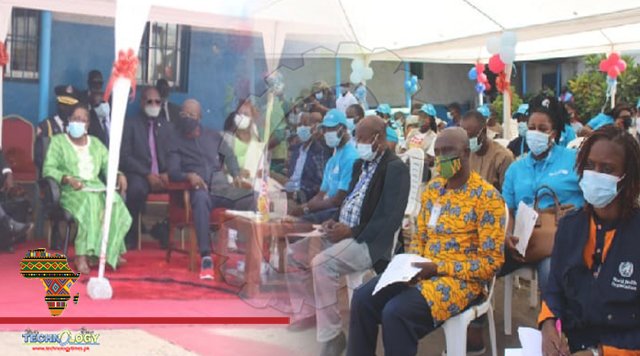Emergency Operations Centres, first used in Nigeria during the national polio response, were valuable assets in Nigeria’s polio response, and they continue to be a vital resource now. Transitioning Polio EOCs into public health EOCs will help boost efforts to strengthen Nigeria’s national and subnational health security.

Transitioning Polio Emergency Operations Centres to Strengthen Nigeria’s Health Security, Many of the tools and resources used in Nigeria’s successful fight to end wild poliovirus (WPV), were also used in responding to the COVID-19 pandemic and other infectious disease outbreaks like yellow fever. Emergency Operations Centres (EOC) where data collection and response to public health threats are coordinated, are one of such resources. Nigeria has reported over 20 public health emergencies and infectious disease outbreaks between 2016 and 2018; the country is one of five member states in the World Health Organization (WHO) African region to report five or more public health events annually. These public health emergencies often occur concurrently, necessitating multisectoral coordination. EOCs help to improve information sharing as well as joint programming for better management and coordination of activities during public health emergencies.
Transitioning Polio Emergency Operations Centres to Strengthen Nigeria’s Health Security, Nigeria developed a National Polio Eradication Emergency Plan in 2012, but a lack of proper implementation resulted in an increase in the number of children paralysed by the poliovirus from 21 in 2011, to 122 in 2012. As part of a programme to help the three polio endemic countries at the time — Afghanistan, Pakistan and Nigeria — eradicate the disease, donor-funded EOCs, the National Polio EOC, and state-level EOCs in Bauchi, Borno, Kaduna, Kano, Katsina, Sokoto and Yobe State, the 7 states with the highest burden of polio cases, were established in 2012. With the establishment of the EOCs, there was improved implementation of the National Polio Eradication Emergency Plan. The Polio EOC system ensured that polio response functions were centralised, and that state-level polio operations were strategically aligned with the national polio programme and the priorities of the National Primary Health Care Development Agency (NPHCDA). The EOCs were critical in developing and executing eradication strategies, improving vaccination campaigns, and coordinating outbreak response. The Borno — Yobe Strategic Operational Plans of 2014 also contributed to a significant reduction in the number of children paralysed by polio Recognising the value of developing national capacity to coordinate Nigeria’s outbreak response, in 2017, the Nigeria Centre for Disease Control (NCDC), established a National Public Health Emergency Operations Centre (PHEOC).
Source: This news is originally published by allafrica